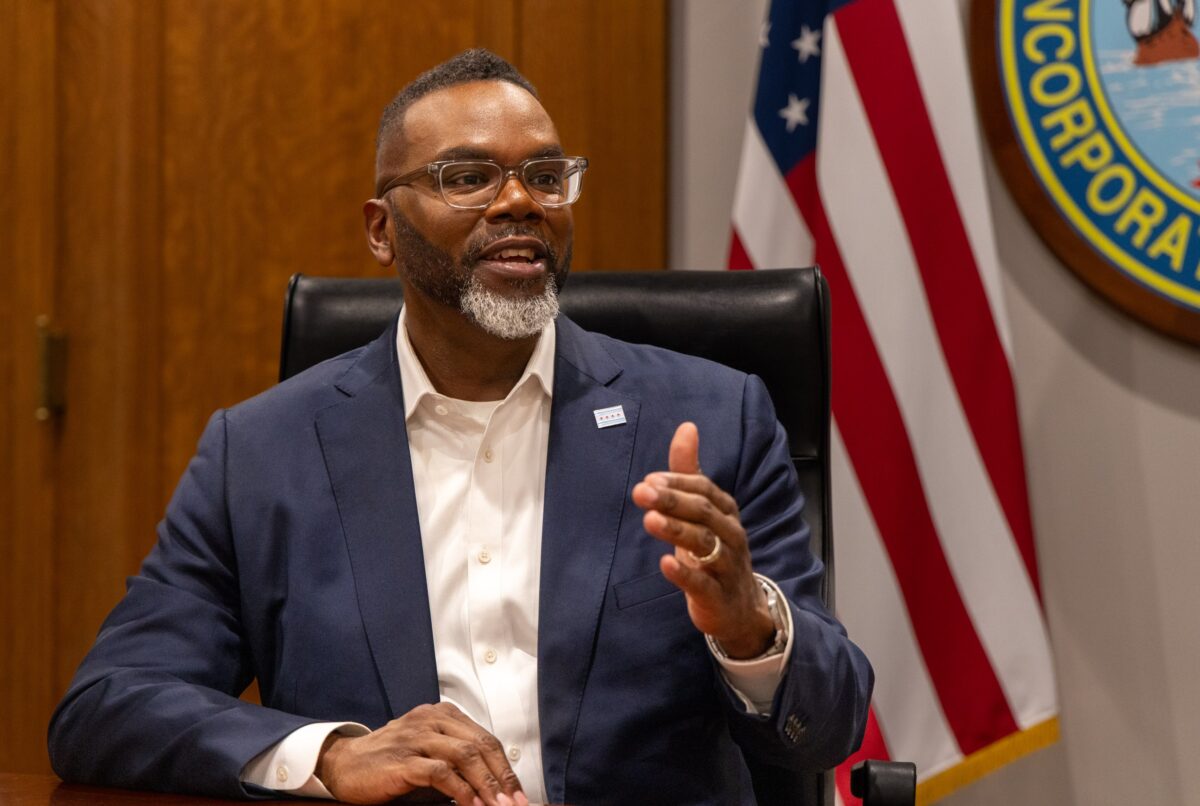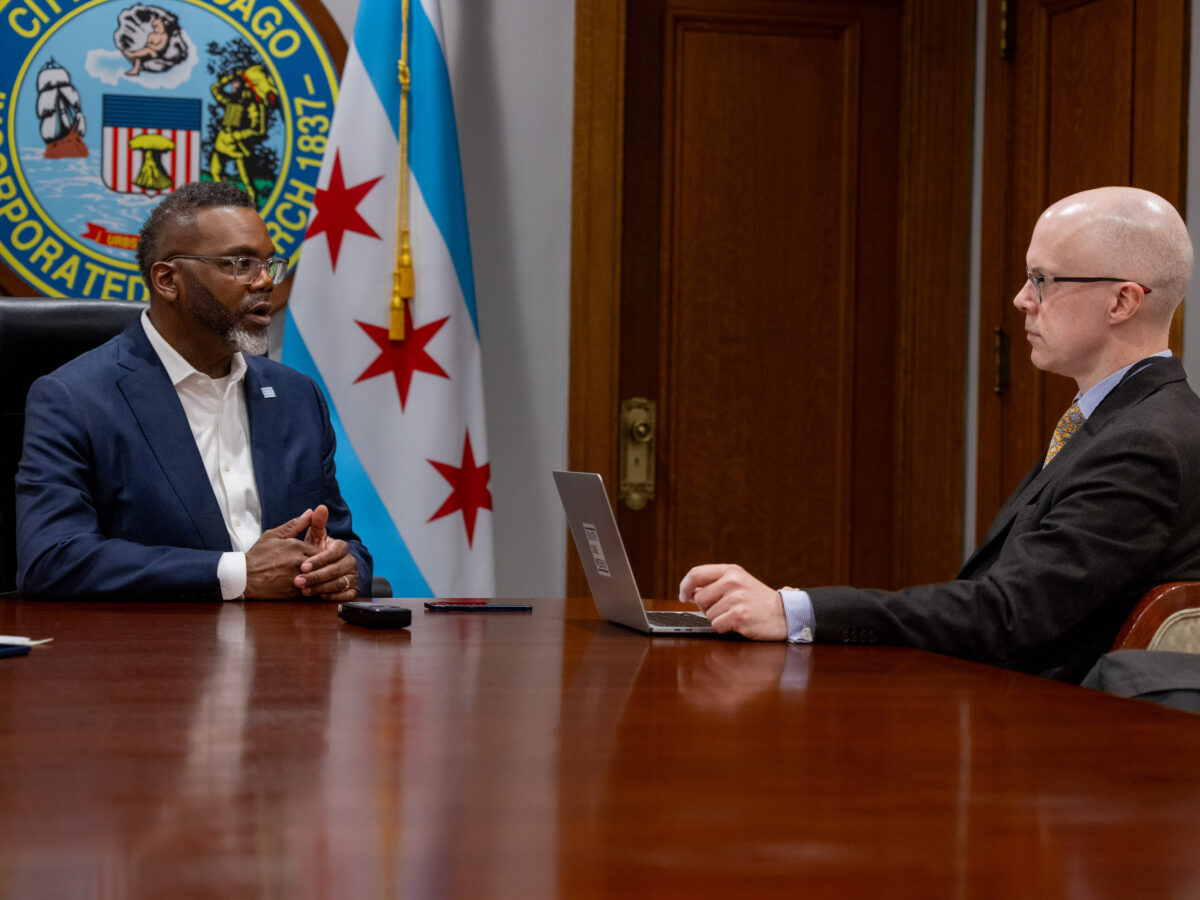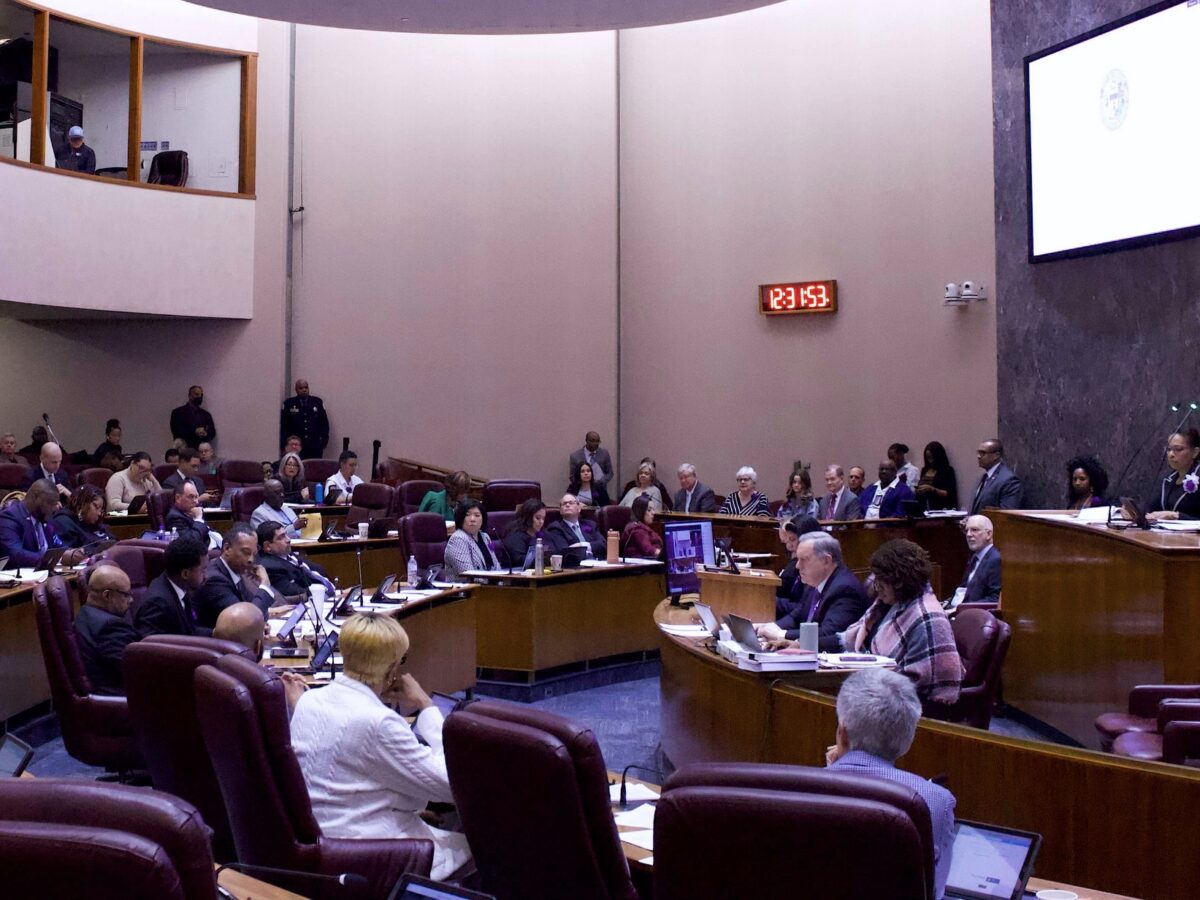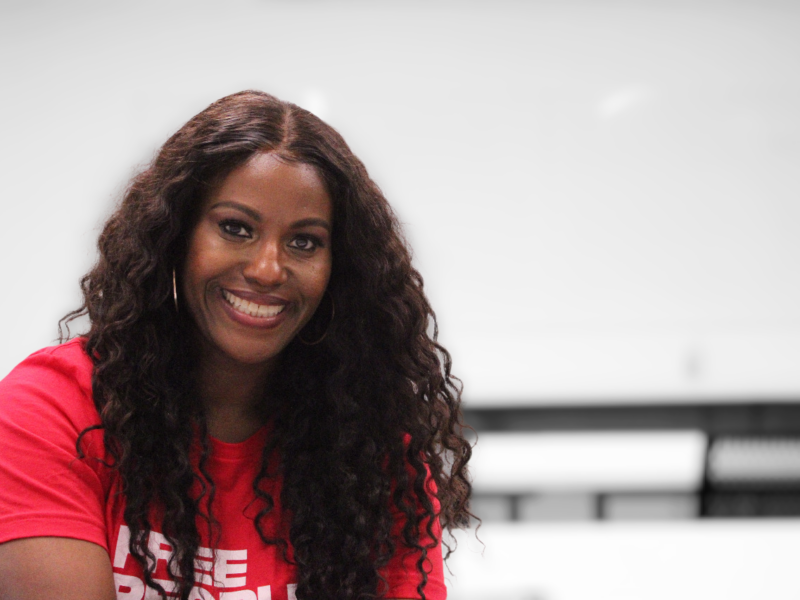Last week, Mayor Brandon Johnson did a media blitz to mark the second anniversary of his inauguration. Johnson, a former Chicago Teachers Union (CTU) organizer and Cook County Commissioner, was carried to City Hall by the support of labor organizers, activists, Black voters on the South and West Sides, and progressive white voters on the North Side in an election where about 40 percent of registered voters cast a ballot.
An ebullient inauguration and ambitious plan to reshape how the city approaches its most pressing issues — violence, education, and housing, to name a few—quickly ran into challenges. When he took office, thousands of asylum-seeking people who’d been bussed to Chicago from Texas and other states were sleeping on police station floors and in tents as they waited for a spot in the city’s overburdened shelter system. Violent crime was still above pre-pandemic levels.
Amid these challenges, Johnson stumbled. While his administration succeeded in standing up an ad-hoc shelter system for asylum seekers, the staggering cost of the effort and choices, such as placing one in a shuttered Woodlawn school, enraged Black residents who felt their long-overlooked needs were once again being shunted aside. Johnson’s first chief of staff, City Hall veteran Rich Guidice, quit in under a year, concerning some in city government. The Mayor’s Office has seen more turnover of senior staff since then.
The mayor has at times struggled to push his legislative agenda through an increasingly restive City Council. A referendum he championed that would have raised taxes on the priciest real-estate sales, while cutting taxes on less expensive ones was rejected by voters. The City Council unanimously rejected his proposed $300 million property tax increase during last year’s budget debate. And Johnson’s cancellation of ShotSpotter’s contract fulfilled a campaign promise but was met with such fierce pushback that he is now considering bringing gunshot-detection technology back.
Johnson has also scored some significant wins. An ordinance sundowning sub-minimum wages for tipped workers passed with his support. Earlier this month, the council passed the mayor’s “green social housing” plan that would create a city-owned nonprofit to drive the growth of affordable housing. And he has negotiated a generous contract with his former union while consolidating control of the public school system, forcing out CEO Pedro Martinez and appointing loyalists and teachers union activists to the school board. And so far this year, violent crime is down significantly compared to previous years, with April seeing the fewest homicides in six decades.
In his next two years, Johnson must build on his wins, coax alderpersons to support his initiatives and convince voters he’s turned it around. Barring that, he has time to to cement his gains and hope they coalesce into a legacy. At the two-year mark, he sat down with the Weekly to discuss his achievements, challenges, theory of change—and Da Pope.
Read the complete interview transcript here
Jim Daley: What achievements in your first two years are you proudest of?
Mayor Johnson: My top priority is to keep people safe in the city of Chicago, and historically, we’ve been challenged with disinvestment that has, I believe, has played a part in violence. And violent crime has gone down significantly this year; we’re already seeing a 22 percent reduction, and that has a lot to do with the full-force-of-government approach, right? And as we build more affordable homes, I’m very proud of that—with our $1.25 billion investment for housing and economic development, it’s the largest in the history of Chicago. That is transformative, right?
Chicago is also responding to our investments in mental and behavioral health. As you may be aware, 40 percent, I believe, of 911 calls historically have been for mental-health crises. So, now that law enforcement is no longer responsible to show up to those interactions, it has freed law enforcement up to respond to the more violent crime. We also reopened three mental health clinics.
I’m very proud of the fact that, you know, we’re going to hire up to 29,000 young people for summer jobs. That’s an incredible jump of 45 percent since taking office. So all of that has played a part in driving violence down in the city of Chicago. A lot of work to be done. But I am encouraged by the results that we’ve experienced so far.
With regard to attacking the economic root causes of violence, how do you approach a problem that’s that big?
You don’t approach it in isolation. The public sector has a responsibility. That’s what I have control over. But I also have the responsibility to bring businesses to the table. And many of them have shown up to help us professionalize and grow the industry of community violence intervention workers. And it’s that type of public-private approach that really allows us to tackle these big problems. So, when I think about youth employment, it’s not just the government—and we’re going to do everything on our part to ensure that government does its part—but it’s not just the government offering up youth employment.
There’s a program that I’m really proud of, though, is the pilot program that we started last year where we hired seventy-five graduating seniors from Chicago Public Schools to participate in a pilot program serving in our Streets and Sanitation department.
But we also have to build more affordable homes so that those same young people can afford to start a family in the city of Chicago, while also challenging our corporate leaders to invest in youth employment—but also to think about how we come together collectively to alleviate the burden of taxation on working people.
So: $11 billion of new investments last year. PSI Quantum is just the big one. 37,000 construction jobs. We’re at $8 billion already this year. Streamlining the process so that it’s easier and more productive to do business with the city of Chicago. All of that plays a part in driving violence down in the city, and it’s working so far. But we can’t let up yet.
Speaking of PSI Quantum, the city held a community meeting where there was significant pushback from the community. How are you bringing those voices into the room?
By having community meetings. I mean, we’re listening to people. I understand they’re, you know, some of the concerns that they have and even the trepidation around this. We’re going to do it together. Look, we haven’t had investment on the Southeast Side of Chicago in over thirty years, the first administration to bring that type of investment there, we don’t want the investment to be received with animus, right? You know, we want to ensure that these investments are really about the full development of that entire region that really is going to benefit the entire city of Chicago.
Your administration negotiated a very fair contract with the CTU, and the schools have a $500 million projected deficit. How are you going to pay for that contract?
We’ll look at multiple different ways in which we can address it, but it’s really going to require all of us working together. And was the motivation behind the working group that I established through an executive order to help think through how we solve our challenges at the city level, all of it will work in tandem. Look, financial negligence and malfeasance has finally showed up; there’s no more kicking the can down the road. We have to address this in the short and long term. And I’m going to be working with the new leadership at Chicago Public Schools, along with the Board of Education, to come up with ideas and solutions that we can all get behind that don’t require us to withhold or to reduce the investments that we’ve already made.
What do you say to people who see your push to install your chief of staff as CPS CEO as you consolidating control of the schools?
I have not made a decision on the leadership for the Chicago Public Schools just yet. I will, and that person will reflect my values. This is not about one entity having control over the other. This is about all of us working together, and that’s what my commitment is.
What regrets do you have from your first two years, and what lessons have you learned?
I do have some lessons that I’ve learned. One of those real tough lessons that I learned is that just because you’re doing good stuff, it doesn’t mean that everybody knows that, or even if they know they may not know what, but they may not know why.
And so one of the things that I do regret is that at the time in which I was standing up government to bring about the transformation that we are experiencing now, bringing all of the different leaders together in the city of Chicago that would help me run this government, the coalition that elected me, I had a responsibility to make sure that that coalition was stood up as well.
For your next two years, what do you most hope to achieve?
I believe that the city of Chicago is well-positioned to be the safest, or one of the safest, most affordable big cities in America. Within the next couple of years, we’re going to continue to double down on our work to drive violence down in the city. We’re going to build more affordable homes. We want to continue to expand opportunities for young people. But again, a safe, affordable, well-resourced school district that I’m hopeful that as we are moving in that direction, that we’re able to see the full manifestation of the investments that we’ve made so far.
The Pope is a Sox fan. How do you [a Cubs fan] feel about that?
Well, if anybody needed a pope to root for them, it’s the White Sox.
Jim Daley is the Weekly’s investigations editor.





